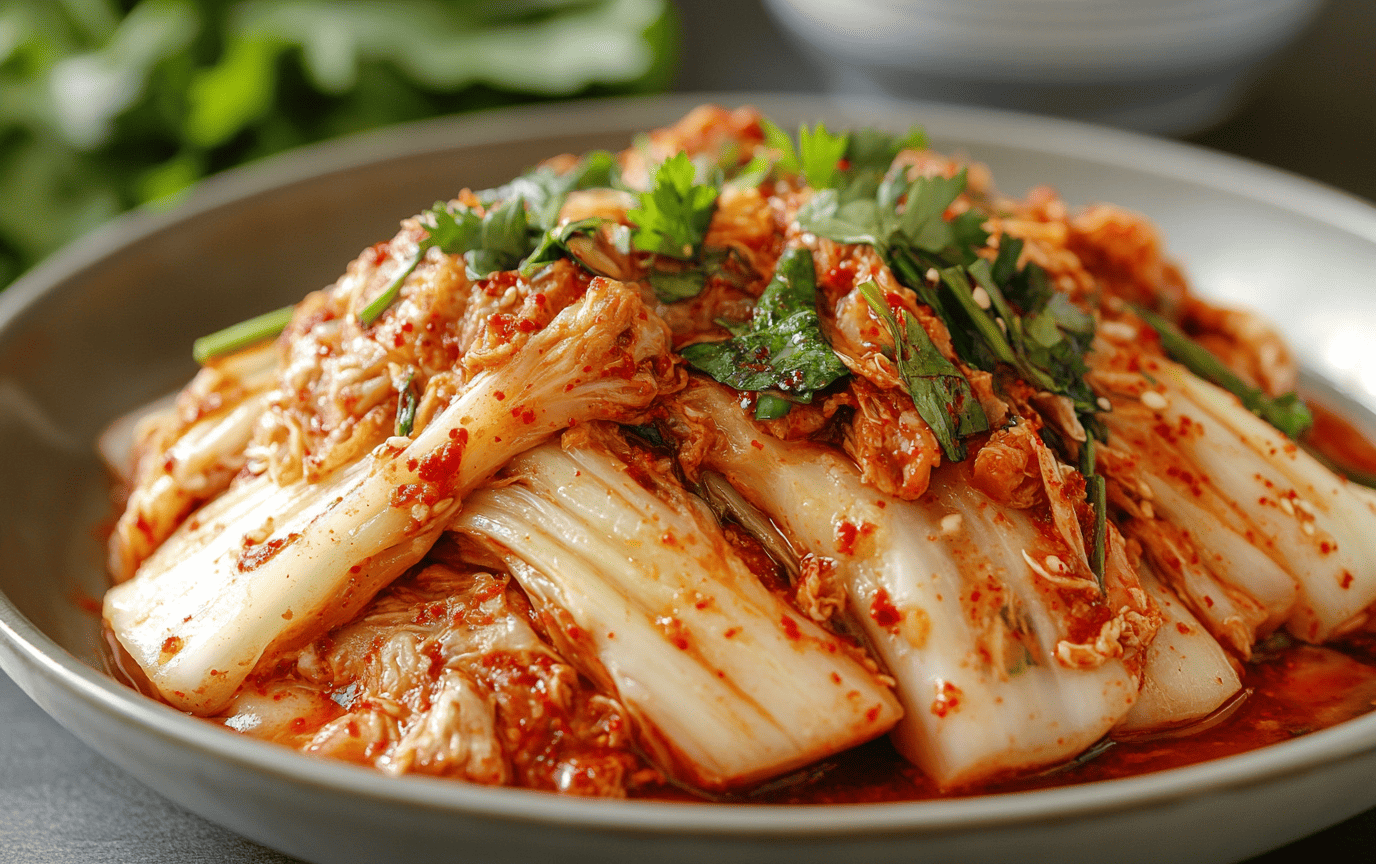The Cultural Significance of Kimchi in Korea: A Journey Through Tradition and Innovation
Kimchi, the quintessential Korean dish, stands as more than just a side of spicy fermented vegetables. It is a cultural icon, a symbol of community, and a reflection of Korea’s rich and intricate heritage. This traditional Korean staple has melded with the very fabric of Korean life, becoming essential not only in daily meals but also in family gatherings and national celebrations.
A Brief History of Kimchi
To truly appreciate kimchi, one must delve into its storied past. Its origins trace back to the era of the Three Kingdoms (57 BC – 668 AD), where Korean ancestors initially preserved vegetables by salting them, ensuring sustenance would last through the long, harsh winter months. Fast forward to the 17th century, when chili peppers—an ingredient with an explosive lineage—made their way to the Korean peninsula. This introduced a thrilling new dimension to kimchi, transforming it into a vibrant, complex blend of flavors that we savor today. Each region in Korea boasts its own version, reflective of local tastes, climate, and ingredients, creating a tapestry of kimchi varieties like no other.
Kimjang: The Community Spirit of Kimchi
Among the many layers of kimchi’s cultural significance is the practice known as Kimjang. This annual celebration is a collective effort where families and communities unite to prepare vast quantities of kimchi, ensuring every household is stocked for the winter. “Come help us make kimchi!” echoes through the crisp autumn air, beckoning neighbors and friends alike. Kimjang is about more than mere food; it embodies the heart of Korean culture—community, cooperation, and the sharing of knowledge, techniques, and even laughter. As family members knead the vibrant chili paste into crisp cabbages, they share stories, recipes, and create lasting memories around this beloved dish.
Kimchi as a Cultural Ambassador
In the vast landscape of global cuisine, kimchi has emerged as a powerful ambassador for Korean culture. Its debut on the international stage during the 1988 Seoul Olympics was a turning point that marked the rise of its global popularity. Today, kimchi is not just a staple in Korea but is celebrated worldwide. With increasing recognition of its nutritional benefits and unique flavor profile, it shines in fusion dishes like Korean tacos, featuring prominently on menus across continents. The South Korean government, keen to leverage this culinary treasure, has actively promoted kimchi as a form of “soft power,” showcasing its health benefits and cultural significance internationally.
The Role of Kimchi in Korean Life
One might wonder what makes kimchi fundamentally Korean. It’s not merely a side dish—it’s the heartbeat of every meal, a reflection of a family’s culinary prowess. Picture a bustling table during a Korean family dinner: bowls of rice, hearty stews, and platters of various dishes, with vibrant kimchi stealing the spotlight in every essence of the meal. From breakfast to dinner, this fermented delight brings everyone together, especially during special occasions like weddings and holidays, where kimchi takes its rightful place of honor. For Koreans, sharing kimchi is not just about food; it’s a symbol of community, respect for nature, and familial unity.
Making Kimchi at Home
Despite its rich cultural significance, making kimchi at home is surprisingly accessible and fiercely rewarding. The straightforward process revolves around fermenting vegetables with a mix of salt and spices—an age-old technique refined through generations. With a few essential ingredients—napa cabbage, garlic, ginger, and chili powder—one can embark on a culinary adventure to create a personalized kimchi recipe that resonates with individual tastes. It’s a revelation to take home a jar of homemade kimchi, feeling the warmth of tradition encapsulated within the glass.
The Nutritional Benefits of Kimchi
Beyond its flavor and historical significance, kimchi offers a treasure trove of health benefits. As a fermented food rich in probiotics, it promotes gut health and aids digestion. The presence of antioxidants and vitamins enhances the immune system, proving beneficial to overall health. “You eat kimchi every day, you’ll be strong,” a grandmother might say, stressing its value in a daily Korean diet. The increasing interest in health and wellness has led to a renewed fascination with fermented foods, elevating kimchi from a mere dish to a nutritional powerhouse.
The Global Fascination with Fermentation
With the revival of interest in fermentation in recent years, kimchi has taken center stage in the culinary world. Chefs and home cooks alike are exploring the depths of fermentation techniques, reclaiming traditional methods while experimenting with ingredients. This renaissance encourages creativity, leading to numerous variations—vegan kimchi, fruit-based alternatives, and even fusion styles that meld kimchi with international delights. In this age of exploration and innovation, kimchi stands as a testament to the enduring appeal of tradition infused with modernity.
Conclusion
At its core, kimchi is not just a dish; it is a cultural phenomenon that encapsulates the enduring spirit of community, tradition, and innovation within the Korean narrative. From its ancient roots steeped in preservation techniques to its vibrant modern interpretations relished in cultures worldwide, kimchi continues to inspire and unite people beyond borders and cuisines. Whether you are a culinary enthusiast, a lover of culture, or simply someone who appreciates the spicy kick of kimchi, this fermented delight serves as a reminder of identity and community. Take a moment to relish a bite of kimchi—its flavors tell a story that has been woven through time, continuity, and the heart of a vibrant culture.
Interested in more insightful reads? Check out our Travel Tips section for the latest advice. For lifestyle inspiration, explore our Lifestyle category, and dive into amazing destinations at Destinations. Don’t forget to connect with us on YouTube, or follow our adventures on Instagram and Pinterest.

















